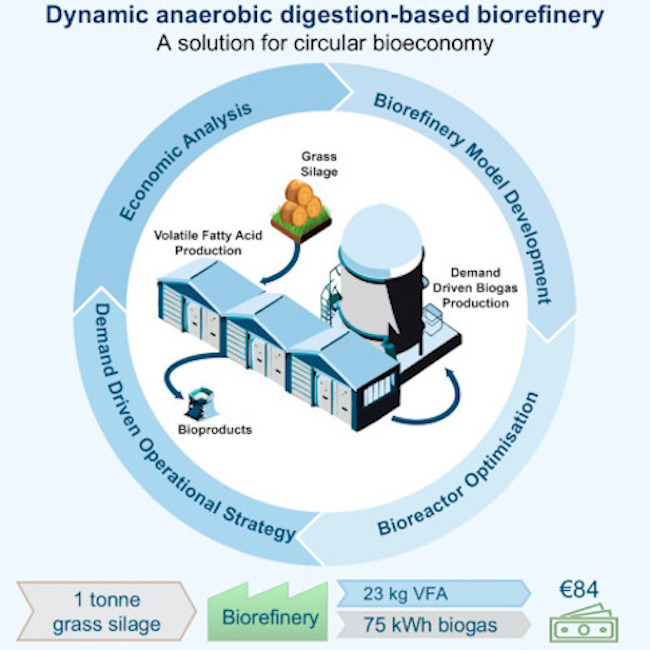
New paper published on a two-phase anaerobic digestion system producing bio products

A new paper published by Cell Press News, which was led by MaREI’s Rajas Shinde and David Wall from University Collge Cork looks at Dynamic anaerobic digestion-based biorefineries for on-demand renewable energy and bioproducts in a circular bioeconomy.
Abstract
Anaerobic digestion (AD) is an important biotechnology for treating biodegradable residues and producing bioenergy, yet its full potential remains untapped. We investigate a two-phase AD system for biorefinery applications, producing valuable bioproducts, such as volatile fatty acids (VFAs) and biogas, from grass feedstock. We introduce a demand-driven operational approach to match market conditions, while minimising water use by reusing the process effluent. The proposed biorefinery model yields ~23 kg of VFAs and 75 kWh of biogas, with a potential gross revenue of €84 per tonne of grass. However, a preliminary economic analysis indicates that this biorefinery model is currently unprofitable. A sensitivity analysis suggests that reducing operating costs through technology advancements and policy support are vital to ensure economic viability. Such biorefineries offer opportunities for the diversification of farmers’ incomes and the transition away from fossil resources. Our work exemplifies the role of AD as a key biotechnology in the circular bioeconomy.




